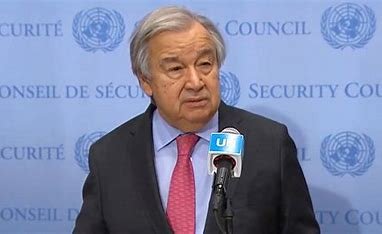In a historic moment, President Joe Biden and fellow leaders from the Group of Seven (G-7) nations embarked on a joint visit to the Hiroshima Peace Memorial Museum in Japan. This symbolic gesture took place during the G-7 summit held in western Japan, marking the second time a sitting US president has set foot in Hiroshima, the site of the world’s first nuclear attack.
The museum stands as a poignant reminder of the devastation caused by the US atomic bomb dropped on Hiroshima on August 6, 1945. President Biden, along with other G-7 leaders, expressed their solemn commitment to peace as they explored the museum’s exhibits, which included personal belongings of victims, photographs, and other artifacts illustrating the horror inflicted upon the city. The attack itself claimed an estimated 140,000 lives by the end of that year.
Deeply moved by the experience, President Biden penned a heartfelt message in the museum’s guest book, emphasizing the collective obligation to build a future devoid of nuclear weapons. He wrote, “May the stories of this Museum remind us all of our obligations to build a future of peace. Together let us continue to make progress toward the day when we can finally and forever rid the world of nuclear weapons. Keep the faith!”
Although President Biden did not make a formal statement after leaving the museum, he and the other G-7 leaders participated in a wreath-laying ceremony at a cenotaph for the atomic bomb victims, paying their respects to those who lost their lives.
First Lady Jill Biden also shared her thoughts in the guest book, highlighting the museum’s role in reminding visitors of their purpose to create a peaceful and free world.
This joint visit to the Hiroshima Peace Memorial Museum by leaders representing nuclear powers such as the United States, France, and Britain held great significance for atomic bomb survivors. They hoped that raising awareness of the consequences of nuclear attacks would revitalize efforts to achieve nuclear disarmament.
Japanese Prime Minister Fumio Kishida, who chaired the G-7 summit and represents a Hiroshima constituency, emphasized the importance of nuclear disarmament. Against the backdrop of escalating nuclear threats, such as Russia’s actions in Ukraine and China’s rapid nuclear forces buildup, the visit served as a powerful statement of resolve. Kishida stated, “We felt the reality of the atomic bombing and shared a sobering moment that will be etched in our hearts. It was historic from the viewpoint of showing our resolve for a world free of nuclear weapons.”
While President Biden did not issue an apology on behalf of the United States for the use of atomic bombs, the visit to the museum showcased a collective commitment among G-7 leaders to work towards a future where the horrors of nuclear warfare are consigned to history. It served as a reminder of the urgent need to continue pursuing nuclear disarmament and strengthen international efforts to prevent the use of nuclear weapons.
The visit to the Hiroshima Peace Memorial Museum stands as a testament to the enduring power of remembrance and the unwavering determination to create a world of lasting peace, reinforcing the importance of dialogue, diplomacy, and global cooperation in achieving a future free from the threat of nuclear weapons.

